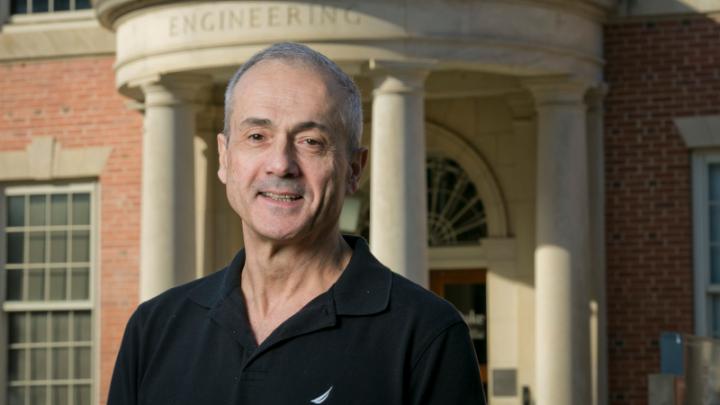A slowdown in image processing speeds up our perception of time passing as we age

Credit: Duke University
DURHAM, N.C. — A Duke University researcher has a new explanation for why those endless days of childhood seemed to last so much longer than they do now–physics.
According to Adrian Bejan, the J.A. Jones Professor of Mechanical Engineering at Duke, this apparent temporal discrepancy can be blamed on the ever-slowing speed at which images are obtained and processed by the human brain as the body ages.
The theory was published online on March 18 in the journal European Review.
“People are often amazed at how much they remember from days that seemed to last forever in their youth,” said Bejan. “It’s not that their experiences were much deeper or more meaningful, it’s just that they were being processed in rapid fire.”
Bejan attributes this phenomenon to physical changes in the aging human body. As tangled webs of nerves and neurons mature, they grow in size and complexity, leading to longer paths for signals to traverse. As those paths then begin to age, they also degrade, giving more resistance to the flow of electrical signals.
These phenomena cause the rate at which new mental images are acquired and processed to decrease with age. This is evidenced by how often the eyes of infants move compared to adults, noted Bejan–because infants process images faster than adults, their eyes move more often, acquiring and integrating more information.
The end result is that, because older people are viewing fewer new images in the same amount of actual time, it seems to them as though time is passing more quickly.
“The human mind senses time changing when the perceived images change,” said Bejan. “The present is different from the past because the mental viewing has changed, not because somebody’s clock rings. Days seemed to last longer in your youth because the young mind receives more images during one day than the same mind in old age.”
###
“Why the Days Seem Shorter as We Get Older.” Adrian Bejan. European Review, 2019. DOI: 10.1017/S1062798718000741
Media Contact
Ken Kingery
[email protected]
Original Source
https:/
Related Journal Article
http://dx.




